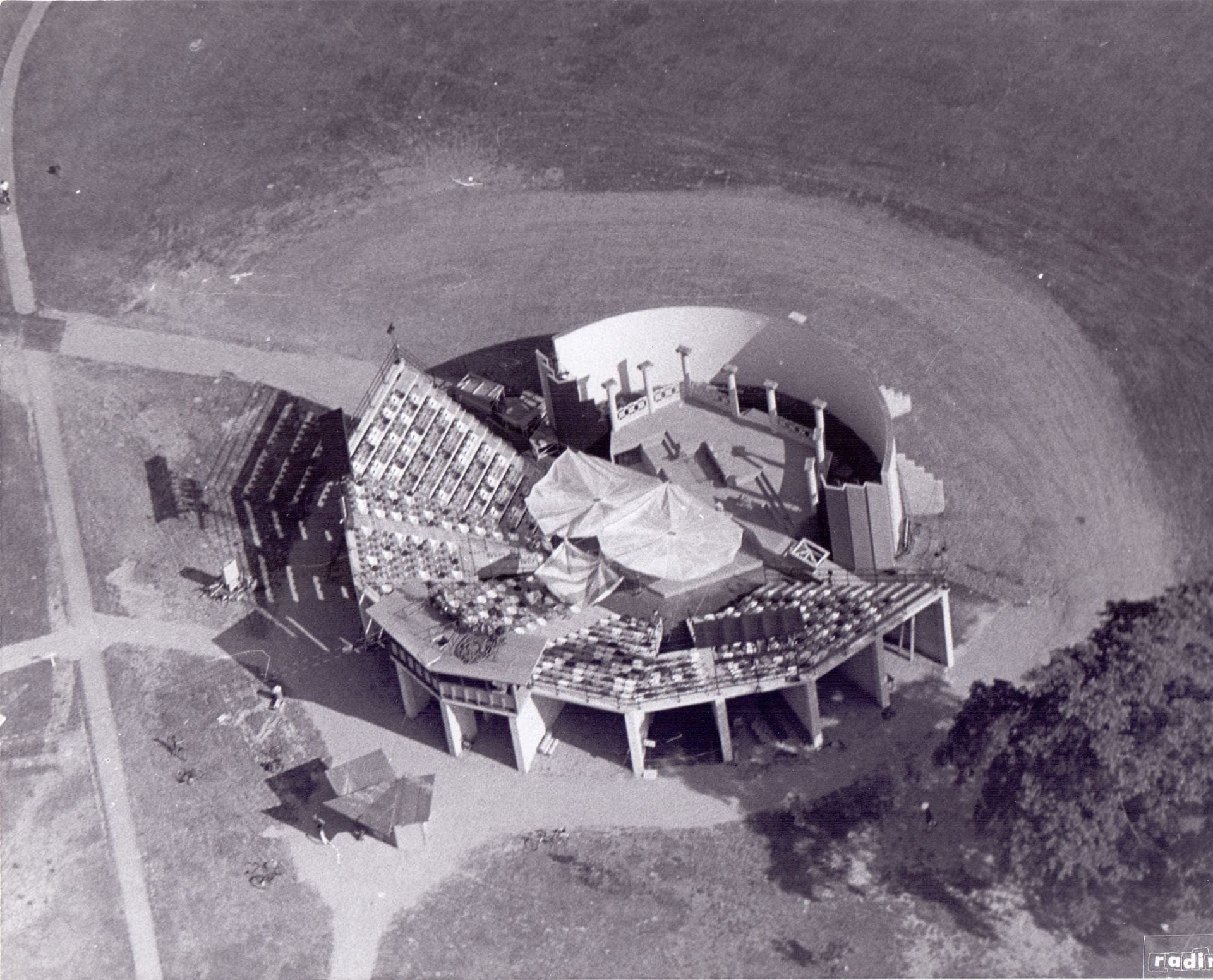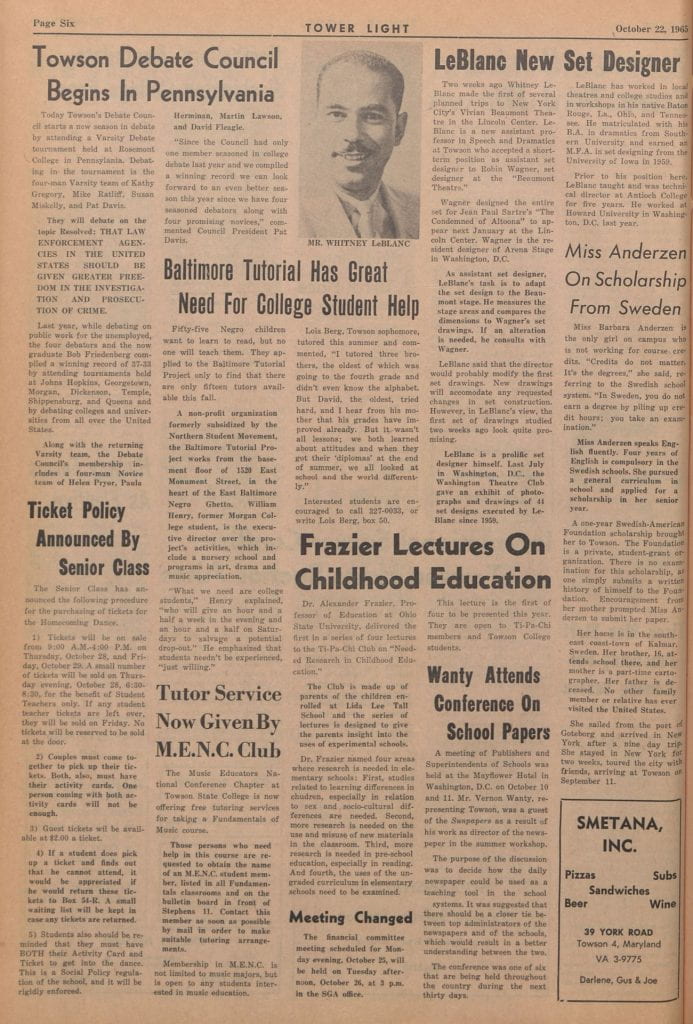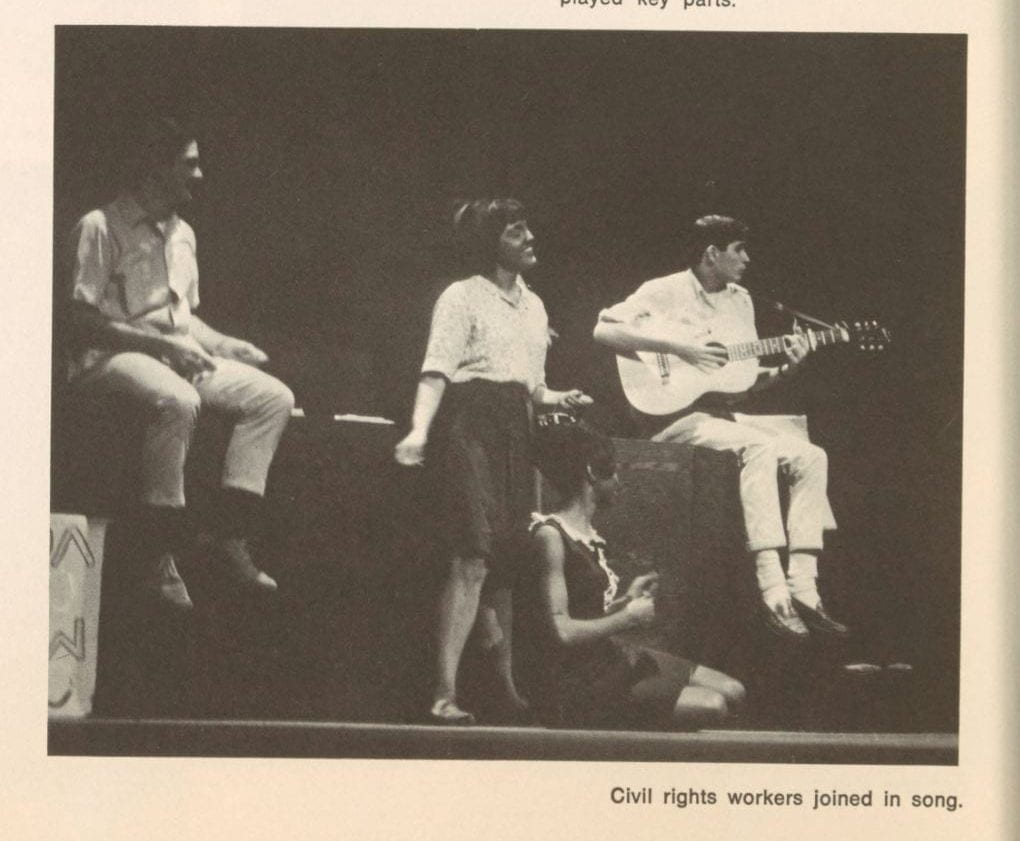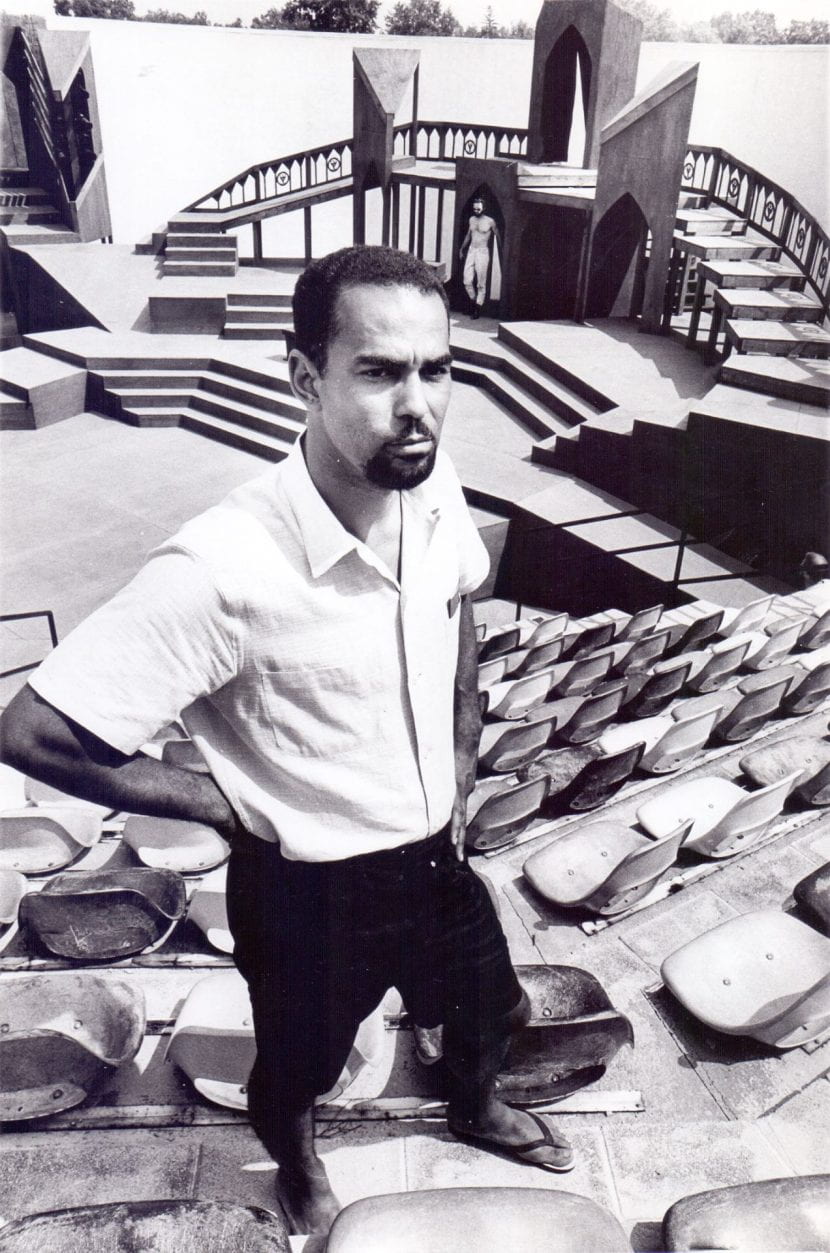One year after the passing of Whitney J. LeBlanc Jr., the University Archives reflects on the experience of Towson’s first Black faculty member. On February 9th, the Towson Black Alumni Alliance and the College of Fine Arts and Communication will honor Mr. LeBlanc by celebrating the 50th anniversary of the sitcom Good Times for which he was an Associate Director.

Whitney J. LeBlanc Jr.
Whitney LeBlanc, born on June 20th, 1931, in Memphis, Tennessee, spent his formative years in Opelousas, Louisiana. He pursued higher education at the University of Iowa, where he earned a Master’s in Theater Production in 1958. In 1960, LeBlanc began teaching at Antioch College. He then held positions as a professor at Howard University, Lincoln University, the University of Texas, and Towson University (then Towson State College).
In 1969, he joined the Maryland Center for Public Broadcasting, directing and producing 86 episodes of Our Street. He then moved to Hollywood, where he joined the Norman Lear/Tandem Tat organization as the Associate Director of Good Times. He would spend the next two decades as a director and a stage manager for numerous shows. Aside from his contributions to television, LeBlanc was a prolific author, penning five books, and notably receiving the Amistad award for his novel Blues in the Wind, a part of his Blues Trilogy.
In 1996, he retired from the Directors Guild of America and moved to Napa Valley, California, where he began designing stained glass window pieces. Mr. LeBlanc passed away in February of 2023. He is succeeded by his wife, Diane LeBlanc, and four children, leaving behind a lasting impact on both his family and the countless students and friends he inspired throughout his career.
LeBlanc Joins TSC

The Speech and Drama Department was established at Towson State College (TSC) by Richard Gillespie in 1964. Just a decade after the ruling of Brown v. Board, Gillespie set out to integrate the department by recruiting Whitney LeBlanc as the assistant professor in Speech and Drama and the first Black faculty member at the school. Despite his contentment as a professor at Howard University at the time, LeBlanc felt compelled to serve the purpose of integrating Towson’s faculty. He joined TSC in 1965.
In an oral history interview conducted through the Unearthing Towson’s History Project he recalled his first day on campus. He recounts that only the four faculty members in the Speech and Drama Department spoke to him and he saw less than ten students of color. He likened his experience at TSC to that of Jackie Robinson during this time.
“Well, let ’em come.”

Racial tensions at TSC came to a boil with The Glen Player’s production of And People All Around, directed by Mr. LeBlanc. Written by George Sklar, the play is based on the murders of three civil rights workers, Andrew Goodman, James Chaney and Michael Schwerner, in Philadelphia, Mississippi. In anticipation of the opening night, President Hawkins called LeBlanc and Gillespie to his office where FBI agents informed him of a protest to the play organized by Klansmen, to which LeBlanc responded, “Well, let ’em come.” Security measures were put in place, assigning an agent to monitor both the students and LeBlanc during the play.
On the opening night of October 20th, dozens of Klan members dressed in full regalia and George P. Mahoney hats gathered on York Road and marched in front of Newell Hall. The disruptors were met with heckling Towson students and the play was put on as originally intended
Theatre U
Theatre U was a non-profit community theater organized by Whitney LeBlanc and his then wife Elizabeth Walton at the Garrison Blvd. Church Center in Baltimore City. LeBlanc’s vision for Theatre U was rooted in fostering better understanding among people of all races through the power of theater, the establishment of which was catalyzed by the recent assassination of Dr. Martin Luther King Jr.
The inspiration behind name “Theatre U” was intentionally kept a secret, allowing audiences to interpret its meaning freely. LeBlanc emphasized the importance of community involvement, stating,
LeBlanc expressed a desire to involve Drama Department students from TSC with the inner city, particularly with Black communities. His goal was to expose TSC students to authentic experiences, challenging them to move beyond pretense and understand the realities of different communities.
Unearthing Towson’s History Project
In 2022, Allyn Lawrence, a student researcher with the Unearthing Towson’s History project, conducted an interview with Whitney LeBlanc where he recounts the memories of his experience as the first Black faculty member at the school.

The Whitney LeBlanc papers are housed at Emory Libraries.
